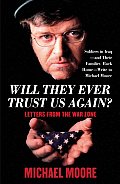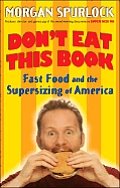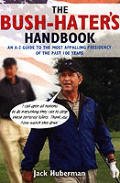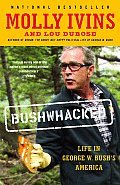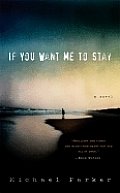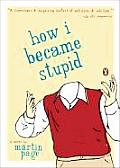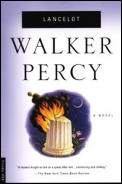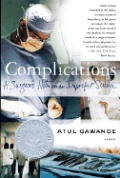This is the first in a series of several posts covering some of the greats of the hardboiled detective genre. It was supposed to be one post, and it was supposed to be done a couple of weeks ago, but I got to running on at the keyboard, and now it's a series of guest posts.
Yours,
the lesser half of the webmistress.)
A year and change back, I ditched the cold midwest and pointed the grill of the car towards the promised land of California. When I got here, I moved into a shoebox of a studio apartment in a building built in the 1920s, in what is now Koreatown, and commenced to missing my better half something fierce.

The first night, I went to sleep in an apartment with no furniture, listening to car alarms and police helicopters, and - like Gob on Arrested Development - I thought "I've made a horrible mistake." A few nights later and still a bit shellshocked, I settled in with a stiff drink (to dull the pain and all) and looked for something to read.
One of the books I'd brought with me was Raymond Chandler's The Big Sleep and, reading it, I realized that Marlowe was prowling streets I knew. I dug out some Ross MacDonald collections I'd been given by a friend, to whom I now owe a major debt, and there was Archer: driving down Sunset towards Alameda, or heading up the 101. As someone weaned on a diet of Southern Lit, where place is all and protagonists often imbibe more than is healthy, this was pretty much a sign from the Universe that L.A. would not suck, and that I'd even get out with my soul intact.
So, here's a brief tour through the best of the hardboiled genre. We'll start with Dashiell Hammet, progenitor of the genre, lunger,* and sometime screenwriter.
Of Dashiell Hammett much has already been written on this blog in regards to The Thin Man. To Mary's note about the author who brought us Nick Charles, a detective that (as Mary put it) is "not so much hard-boiled as he is happily pickled in gin," I would only add the following brief remarks and a few suggestions:
Hammett was a detective who turned to writing more than he was a writer of detective stories. He worked as a Pinkerton operative before WWI, then enlisted in the U.S. Army as an ambulance driver, where he caught the Spanish Flu and then tuberculosis. He took up writing (and serious drinking) relatively late in life, deciding to write what he knew best: the grimy, unglamorous work of the average detective. Sam Spade, unlike Sherlock Holmes, was not so much brilliant as dogged, armed more with a deep appreciation of human fallibility than with, say, the knowledge of the type of ash produced by every major brand of cigar. He made a nice chunk of change turning his books into scripts for Hollywood but a love of scotch and the ponies ensured that Hammett stayed broke pretty much all the time.
(And no wonder the Warners' loved him: his dialogue demands to be turned into a screenplay. He writes like Humphrey Bogart, Rosalind Russell, and Carey Grant talk. Urkel, reading Hammett aloud, would sound like Charlie Parker.)
Hammett's prose is both lean and lively. Hemingway, that other WWI ambulance driver turned writer, was a big fan and arguably influenced by Hammet's writing. His dialogue crackles, and his plots twist like a burlesque dancer with a bad case of the jake-leg.
The Thin Man and The Maltese Falcon are the most well known of Hammett's books, and both are stellar, but for my money you can do no better than Red Harvest.

Red Harvest follows Hammett's "Continental Op," a detective agency operative who - in the course of dozens of short stories and books - is never named. In it, the Op lands in Personville (called Poisonville by its residents) only to discover that the man who hired him is, according to a local hustler, "gone to sit on the right hand of God, if God don't mind looking at bullet holes." The Op, naturally, feels a professional obligation to find out who bumped off his client. This obligation intensifies when he realizes that the recently departed was the one stand-up guy in a town so corrupt it makes D.C. look like Mayberry.
The initial murder is solved in about sixty pages. The next 150 or so find the Op on a one-man crusade, turning gangster against politico against gambler against crooked labor bosses and more crooked management bigwigs, getting so deeply caught up in the proceedings that by the time the dust settles he's arguably as culpable as the rest of them where the escalating body count is concerned. The climax finds our hero so jangled by the whole thing that he worries he's going "blood simple" and, in desperation, gets loaded on laudanum and gin to knock himself out. I'll leave the plot description at that, as saying anything more would be criminal.
Initially considered unfilmable for its cynicism and violence, it's the only of Hammett's novels without a legitimate bigscreen version and remains his great, relatively lost, cult novel. (Salon has a nice essay on it here that points out that the producers of Deadwood should be sending the man's heirs a royalty check.) Do yourself a favor and check it out: if this one didn't bear the critical mark of Cain, aka "the genre novel", it would be on college reading lists alongside of classics like The Jungle, Sister Carrie, McTeague, or The Great Gatsby.
(Yes. The Great Gatsby.)
Bonus read: For another less conventional story that also delves into the incredibly corrupt early 1900s political scene detailed in social histories like Triangle, check out The Glass Key - a sordid little novel about a local ward boss, a Senator's son on the wrong end of a blackjack, and a gambler who learns to be a detective as he goes along. It's Tammany Hall, but with blackjacks and such. Also good for fans of Miller's Crossing.
-----------------------------
* A lunger, fyi, is somebody with TB. If they are appearing in a detective story, odds are they're a mug with a bright red complexion who coughs into a hankerchief a lot and doesn't seem particularly afraid to die. On the bright side, a coughing fit is a good time to sap the no-good fourflusher and make a break for the door. With that cough, his aim'll be off and he'll nick the doorframe instead of perforating you. See? Educational!
